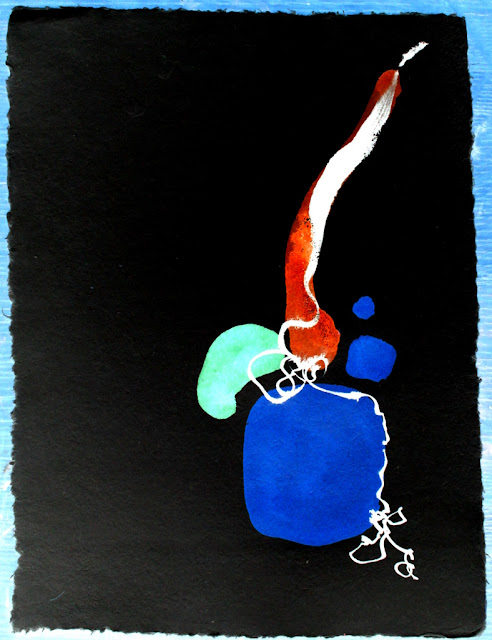'While I love my computer, I think computers have robbed us of the feeling that we're actually making things.... Just watch someone at their computer. They're so still, so immobile. You don't need a scientific study (of which there are a few) to tell you that sitting in front of a computer is killing you, and killing your work. We need to move, to feel like we're making something with our bodies, not just with our heads.
Work that only comes from the head isn't any good. Watch a great musician play a show. Watch a great leader give a speech. You'll see what I mean.
You need to find a way to bring your body into your work. Our nerves aren't a one-way street - our bodies can tell our brains as much as our brains tell our bodies. You know the phrase 'going through the motions'? That's what's so great about creative work: if we just start going through the motions, if we strum a guitar, or shuffle sticky notes around a conference table, or start kneading clay, the motions kickstarts our brain into thinking.'
When I got a new phone and realised I could make images on it, I did a couple of drawings.
I found it very exciting, and I love what filters can do to my images, I use them all the time.
But somehow I've never really moved to working directly onto a screen. There's something about marks made with my hand that I find more intriguing.
Once the marks are there, the computer can add amazing riches.
Austin Kleon would say that this is a form of editing. For me it's more than that, the computer adds an additional layer of creative possibility. But it's true that the original idea is always created with my hands, onto paper or canvas.
'It wasn't till I started bringing analog tools back into my process that making things became fun again and my work started to improve. For my first book, Newspaper Blackout, I tried to make the process as hands on as possible. Every poem in that book was made with a newspaper article and a permanent marker. The process engaged most of my senses: the feel of newsprint in my hands, the sight of words disappearing under my lines, the faint squeak of the marker tip, the smell of the marker fumes - there was a kind of magic happening. When I was making the poems, it didn't feel like work. It felt like play.
The computer is really good for editing your ideas, and it's really good for getting your ideas ready for publishing out into the world, but it's not really good for generating ideas...
That's how the book was made - hands first, then computer, then hands, then computer. A kind of analog-to-digital loop.
That's how I try to do all my work now. I have two desks in my office - one is 'analog' and one is 'digital'. The analog desk has nothing but markers, pens, pencils, paper, index cards and newspaper. Nothing electronic is allowed on that desk. That's where most of my work is born, and all over the desk are physical traces, scraps, and residues from my process... The digital desk has my laptop, my monitor, my scanner, and my drawing tablet. This is where I edit and publish my work.
Try it: If you have the space, set up two workstations, one analog, and one digital. For your analog station, keep out anything electronic. Take $10, go to the school supply aisle of your local store, and pick up some paper, pens, and sticky notes. When you get back to your analog station, pretend it's craft time. Scribble on paper, cut it up, and tape the pieces back together. Stand up while your working. Pin things on the walls and look for patterns. When you start to lose steam, head back to the analog station and start to play'.
.













No comments:
Post a Comment